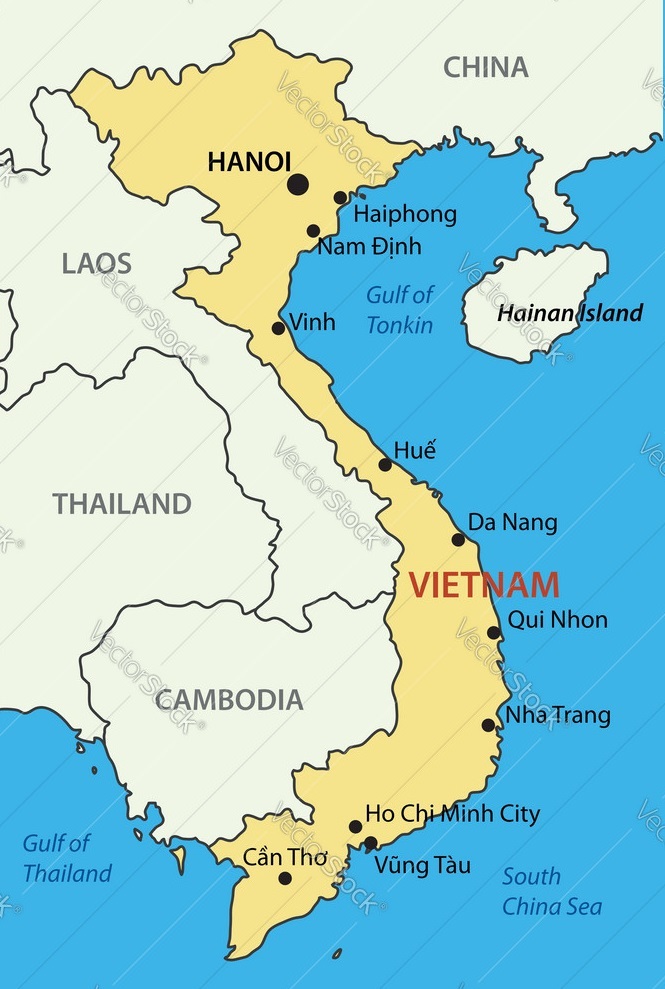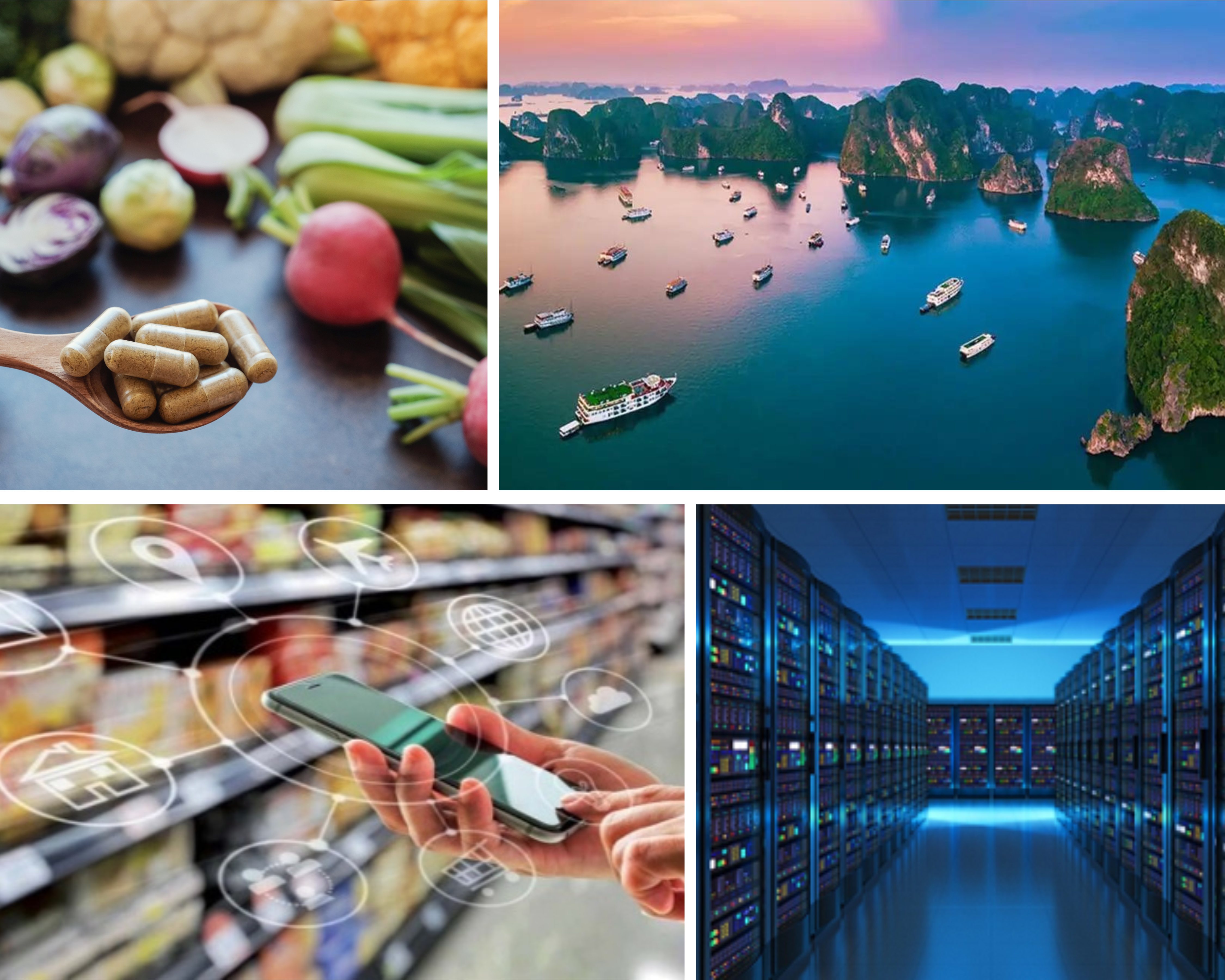Doing Business in Vietnam
Vietnam offers compelling business opportunities. However, with its numerous idiosyncrasies and challenges, doing business in Vietnam should be well planned.
DCPA Doing Business in Vietnam 2023 is aimed at briefing you about major business opportunities in Vietnam in the current business context, highlighting the country’s key strengths and advantages, major challenges and idiosyncrasies, addressing selected industry sectors of ample potential. Specifically, the material is divided into three sections:
Country Fundamentals
With a large work force (51.7 mil people) of fairly young median age (33), low labor cost (about half of China’s), good logistics and industrial infrastructure, Vietnam has recently emerged as a new global manufacturing hub for global electronics giants such as Canon, Samsung, Apple, and Xiaomi, which have recently relocated their operations out of China. Four of the factories run by Apple’s Taiwanese partners – Foxconn, Luxshare, Pegatron, and Wistron – have been well established in Vietnam and are expanding and considering using more Vietnamese suppliers. iPad and Airpod Pro 2 were the most recent exoduses of Chinese production bases to Vietnam.
According to UNCTAD’s 2020 data, Vietnam is among the world’s top 20 FDI host countries. During Covid-19 pandemic (2019-2021) and the subsequent global economic recession (2022), FDI remained stable. Better yet, FDI disbursement reached an all-time high $22.4 bn in 2022. This is attributed to Vietnam’s strong track record in economic growth and inflation control, besides stable politics, consistent determination toward reforms as well as robust resilience during crises such as Covid-19 or the global energy crisis caused by the Russia-Ukraine war

Since WTO accession in 2007, Vietnam’s International trade has consistently expanded with 10-year CAGR of 12.3%, reaching US$730mn in 2022. Trade surplus is usual, ranging between USD hundreds of thousands to above 1bn, driven by strong exports, notably those of agribusiness goods. This is thanks to Vietnam signing multiple bilateral and multi-lateral trade agreements and enhanced competitiveness of numerous Vietnamese merchandise namely shrimp, coffee, rice, vegetables and fruits, rubber, cashew nut, pangasius, cassava.
Vietnam’s strategic location (central to Asia – the world’s most populous continent; access to major shipping routes via its long coast, proximate to Southern China’s manufacturing hub – the globe’s largest of its kind; large logistics hub – with 3 deep sea ports), is another key attribute to Vietnam successes in terms of FDI and international trade.
Aside from its obvious internal strengths, Vietnam has its own idiosyncrasies to explore and tackle, namely: strong rice culture, unique and highly favored cuisine, significant regional diversities, strong preferences toward foreign brands, products and foreigners), lack of queuing habit, etc. To be successful in Vietnam, many global leaders had to greatly customize or adapt. Good examples are fast food retailers and food producers.
Vietnam also represents many challenges to overcome, notably corruption, legal opacity and inconsistency, undeveloped infrastructure, language barriers, dominance of informal economy.
Business Opportunities
With its numerous advantages and internal strengths, Vietnam presents foreign investors and entrepreneurs with many industry sectors of high growth or strong recovery (as pre-Covid) notably agribusiness (with multiple sub-sectors), health supplements, IT infrastructure and services, modern retail (modern trade and e-commerce), travel and tourism.
Vietnam possesses enormous potential for agribusiness: home to farming of various crops (vegetables & legumes, cashew, black pepper, tea, coffee, rice, etc.), aquaculture and fisheries, food processing, agritech (agricultural technology), animal feed, and related items in the supply chain. Vietnam is also a world’s top exporter of numerous agro produces, seafoods and aquatic products. – most in USD bn in value. The market opens ample opportunities for foreign players in the areas of sustainable hi-tech farming/ aquaculture and value-added processing. In addition, there are a variety of monetary incentives for agribusiness investments including but not limited to zero export and import duties, lower or zero Value-added Tax, exempted or rebated land rent, and exempted/ rebated Corporate Income Tax.

Vietnam’s health supplement market is seeing a rapid increase due to the country’s demand for health-related and personal care products, driven by one of the fastest-growing middle-income and affluent classes in ASEAN. The awareness for healthcare and personal care is derived not only from the aged group (65+), but more from the younger groups. Another key driver is the common practice of self-medication whose rate ranges between 40-60% in rural areas and 60-70% in urban areas. Foreign brands are normally more trusted than local brands.
Vietnam’s government is determined to digitize the Vietnamese economy and has been actively promoting an Industry 4.0 agenda. Moreover, as Vietnam has emerged as a production center for both IT hardware and services such as software development outsourcing, software and IT services have huge potential for increased adoption by enterprises and public sector. Other potential areas include cloud computing, fintech, broadband broadcasting, etc.
Among highest growth sectors, modern trade retail currently still has low penetration (25%) but is expanding fast, dominated by foreign players (above 50% market share, which is expanding) notably Central Group (Thailand) and Aeon (Japan). High internet penetration & smartphone usage, growing trends of online shopping; surging e-payment are key growth drivers of e-commerce.
With Government’s strong determination and effective policies (airfare cap, 3-month visa for foreigners), promotion packages of established and emerging tourist spots, travel and tourism is expected to boost in the near term, starting from the second half of 2023.
Market Entry Strategies
As of now, a foreigner can do almost everything a local Vietnamese can, given the government’s market openness commitments. Market entry options for a foreigner regarding their Vietnam business intentions and objectives consists of two major channels: incorporation and without incorporation.
Speaking of incorporation, the most popular legal form for foreign-owned companies is limited liability company (LLC), with 1-member or 2-or-more members (owners). However, joint stock companies (JSC), requiring at least 3 shareholders, is becoming increasingly popular.

Without incorporation, a foreigner may choose to conduct normal trading with local partners, with an option to set up a representative office in Vietnam. They may also form Commercial alliance: distributorship, agency, franchise/ product licensing, with or without having a rep office. Plus, they may establish contractual relationships: BT, BOT, BTO, BCC (usually applied to infrastructure and energy projects), manufacturing contracts. Lastly, they may acquire or merge into an existing domestic company (of varied ownership types). This helps a foreign investor save a lot of time for market entry and penetration. M&A: Prevailing laws have allowed foreigners to acquire up 100% shares in a firm, including a listed company, in many business sectors. Ownership limits only apply to a handful of sectors such as advertising and logistics (up to 99%), pharmaceutical retail (0%).
Send Us an Inquiry or RFP
B17-16, Sunrise City View, 33 Nguyen Huu Tho St., Dist. 7, Ho Chi Minh City, Vietnam
2/F Helios Tower A, 75 Tam Trinh St., Hoang Mai Dist., Hanoi, Vietnam
+84 775 121 131